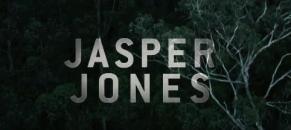 3596125872637916326.jpg
3596125872637916326.jpg
 3596125872637916326.jpg
3596125872637916326.jpg
On the night that Jasper Jones, a young Aboriginal man and social outcast, shows Charlie Bucklin the dead body of young Laura Wiseheart, Charlie's life is changed forever. Believing Jasper to be innocent, Charlie embarks on a dangerous journey to find the killer, defeating the local racists, facing the break up of his parents and falling head over heels in love as he discovers what it means to be truly courageous.
Source: Screen Australia.
'On the outskirts of a tall and looming forest in the south of Western Australia is a quiet timber town. Establishing shots reveal the empty streets and weatherboard houses. This isolated, fictional town, Corrigan, is familiar, yet is not as peaceful as it may seem. Adapted from the book of the same name by novelist Craig Silvey, Jasper Jones (2017) is a startling expose of the sinister side of small-town Australian life. Directed by Rachel Perkins, who also helmed 2009's Bran Nue Dae and several episodes of the TV series Redfern Now, the film tells the story of the bright and inquisitive Charlie Bucktin (Levi Miller), who, in the middle of the night on Christmas Day 1969, is awoken by town outcast Jasper Jones (Aaron McGrath) pleading for his help. Leading him to the middle of the forest, Jasper reveals to Charlie the dead body of local girl Laura Wishart (Nandalie Campbell Killick), and the pair take it upon themselves to figure out who killed her. True to the Australian Gothic genre, by the end of the narrative, Charlie will realise just what it means to live in a small rural town, and will be made aware of the oppression that members of the community live under. This relates, firstly, to the racism inflicted upon both the title character and the Vietnamese family of Charlie's best friend Jeffrey Lu (Kevin Long), and, secondly, to the home as a site of oppression and horror for female characters, a common motif in the Australian Gothic genre.'
Source: Abstract.